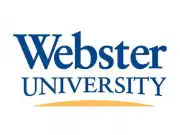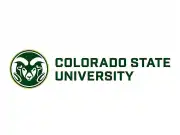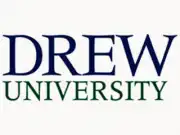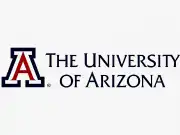Linguistics Programs in the USA for International Students
- Advantages of Studying Linguistics in the USA
- Formats and Levels of Linguistics Programs in the USA
- Top Universities for Linguistics in the USA
- How to Apply for Linguistics Programs in the USA
- Application Documents for Linguistics Programs in the USA
- Tuition Fees for Linguistics Programs in the USA
- Scholarships and Grants for Linguistics Programs in the USA
- Career Prospects and Internships After Studying Linguistics in the USA
- FAQ – Frequently Asked Questions

Bachelor of Arts - Languages and Transcultural Studies (French)
Webster UniversityThe languages and transcultural studies program aims to prepare students for a multi-cultural and multi-ethnic global society.
We help students improve their intercultural communication, language skills, and self-confidence. It lets pupils compare their beliefs, customs, and viewpoints to…

Bachelor of Arts - Languages and Transcultural Studies (Spanish)
Webster UniversityThe languages and transcultural studies program gives students the tools they need to succeed in a global, multi-cultural and multi-ethnic society.
Intercultural communication, language learning, and self-confidence help students become better global communicators. This helps pupils comprehend…

Bachelor of Arts - English
Colorado State UniversityAs an English major at CSU, you will join a vibrant community recognized for its commitment to pedagogy, interdisciplinary programs, and distinction in research and the creative arts.
This program will engage your curiosity and creativity, instruct you in purposeful writing for many audiences,…

Bachelor of Arts - English
Drew UniversityThe Bachelor of Arts program in English includes specializations in Creative Writing, Literature, and Writing with Communication Studies. It's personalized to your preferences. Take the next (or first) step in your artistic path. Hear from professional writers, poets, and publishers. Create a portfolio…

Bachelor of Arts - French and Francophone Studies
Drew UniversityThe French bachelor program at Drew aims to offer students a comprehensive examination of French and Francophone literature and culture, as well as to accommodate students of all levels of proficiency in the French language.
Popular culture, film, business French, and literature from…

Bachelor of Arts - German Studies
Drew University
Bachelor of Arts - Italian Studies
Drew UniversityA comprehensive understanding of the Italian language, literature, culture, and film may be attained via the rigorous and engaging curriculum offered by Drew University's Italian Studies program. It is estimated that over 90 million individuals throughout the globe speak Italian as either their first…

Bachelor of Arts - Spanish
Drew UniversityIn today's world, knowing Spanish is crucial. It's not only for keeping and strengthening economic and cultural links with the 20 nations where Spanish is the official language, but also for understanding and respecting the culture of the more than 50 million Hispanics living in the US. Immerse yourself…

Bachelor of Arts - Chinese Studies
Drew UniversityProficiency in the Chinese language is a significant advantage in the contemporary global employment landscape. Pursuing a major or double major in Chinese studies enhances employability and renders graduates particularly attractive to employers across many sectors, including business, sciences, humanities,…

Bachelor of Arts - English
The University of Arizona, USADo you enjoy writing, reading, and analyzing texts? Through textual analysis, analytical composition, and literary history, English majors will explore the foundational texts of American, British, and international literature. Additionally, you can enroll in classes in various subjects, such as digital…
Advantages of Studying Linguistics in the USA
Education in the USA is traditionally considered one of the most prestigious and high-quality in the world. This is especially true for the humanities, including linguistics. Linguistics programs in the USA offer a wide range of specializations, highly qualified faculty, and access to advanced research resources.
Key advantages of studying in the USA:
- Wide range of programs: from applied linguistics and sociolinguistics to neurolinguistics and computational linguistics.
- International academic environment: studying with representatives from different countries.
- Innovative methods: focus on practical application of knowledge and the use of digital technologies.
- Access to resources: libraries, research labs, world-class software.
- Flexible curricula: students can choose subjects and develop individual learning paths.
- Career prospects: graduates are in demand in education, IT, translation, data analytics, and other fields.
Formats and Levels of Linguistics Programs in the USA
- Bachelor’s Degree (Undergraduate Programs)
Duration — 4 years. Focus on core subjects: phonetics, morphology, syntax, semantics, language history, etc. - Master’s Degree (Graduate Programs: MA, MS)
Duration — 1 to 2 years. Specializations: applied linguistics, translation studies, linguistics and technology, linguistics and cognitive sciences, etc. - Doctorate (PhD)
Duration — 4–6 years. Main focus — scientific research. Preparation of a dissertation, participation in conferences and publications. - Short-term Programs and Certificates
Duration — from 3 months to 1 year. Focus — on specific skills (e.g., English teaching (TESOL), machine translation, etc.)
Top Universities for Linguistics in the USA
| University | Program Features | Acceptance Rate | Cost (per year, approx.) |
|---|---|---|---|
| Massachusetts Institute of Technology (MIT) | Strong emphasis on theoretical and computational linguistics | about 4% | $55,000–$65,000 |
| Stanford University | Research in NLP and cognitive linguistics | about 5% | $55,000–$65,000 |
| University of California, Berkeley | Wide specialization, active research projects | about 15% | $45,000–$55,000 |
| Harvard University | Focus on philology and historical linguistics | about 5% | $55,000–$65,000 |
| University of Chicago | Strong philological and analytical foundation | about 6% | $50,000–$60,000 |
| Georgetown University | TESOL and applied linguistics programs | about 17% | $45,000–$55,000 |
| Ohio State University | One of the largest linguistics departments in the USA | about 30% | $30,000–$40,000 |
How to Apply for Linguistics Programs in the USA
Application Process
Application involves several steps:
- Selecting a university and program.
- Preparing documents.
- Taking exams: TOEFL/IELTS, SAT/ACT (for undergraduate), GRE (for master’s and PhD).
- Writing a motivation letter or essay.
- Requesting letters of recommendation from professors.
- Submitting the application via the university’s website or a common platform (e.g., Common App).
- Paying the application fee: from $50 to $120.
- Waiting for a decision.
Deadlines are important. For most programs:
- Fall intake: applications accepted from October to January.
- Spring intake: less common, deadlines — until September.
Challenges for International Students
Applying to U.S. universities as an international student can involve several challenges:
- High competition: especially when applying to top universities with low acceptance rates.
- Language barrier: even with good English, academic writing, presentations, and reading scholarly texts can be difficult initially.
- Financial burden: the total cost of education and living may exceed $70,000 per year, and getting a scholarship requires serious preparation.
- Differences in education systems: structure of school and university education, grading approaches, and exam formats differ.
- Limited access to internships and part-time work: the F1 student visa limits official employment opportunities.
- Visa difficulties: obtaining a visa requires proof of financial means and an interview at the embassy.
- Nostalgia and cultural adaptation: adapting to a new lifestyle, culture, and social environment may take several months.
Application Documents for Linguistics Programs in the USA
Required documents:
- School certificate/Diploma with transcript (translated and notarized)
- Exam scores (TOEFL, IELTS, SAT, GRE, etc.)
- Letters of recommendation (2–3)
- Motivation letter
- Resume/CV
- Passport
- Financial documents (proof of funds for obtaining a visa)
Tuition Fees for Linguistics Programs in the USA
The cost depends on the type of university and program:
| Type of University | Average Annual Tuition | Housing and Meals | Other Expenses |
|---|---|---|---|
| Private universities | $40,000 – $65,000 | $10,000 – $20,000 | $3,000 – $5,000 |
| Public universities | $20,000 – $45,000 | $10,000 – $15,000 | $3,000 – $4,000 |
Total: from $35,000 to $85,000 per year.
Scholarships and Grants for Linguistics Programs in the USA
Academic, athletic, creative, and research scholarships are available for international students:
Main eligibility criteria:
- High GPA
- High exam scores
- Social engagement
- Participation in research projects
- Strong motivation letter
Application deadlines:
- Undergraduate scholarships: September — February
- Graduate and PhD: October — January
Partial or full tuition coverage is possible, as well as funding for living expenses and textbooks.
Career Prospects and Internships after Studying Linguistics in the USA
After completing linguistics programs, graduates can work in various fields:
- Teaching foreign languages
- Linguistic research
- Working in IT companies (text analysis, machine translation, chatbot development)
- Translation work
- Journalism and publishing
- Working in international organizations
Internships:
- Work in NGOs, research centers
- Practice in IT companies and media
- Exchange programs with European universities
After graduation, students can apply for an F1 visa with the possibility of obtaining OPT (Optional Practical Training) — up to 12 months of legal work in the field.
FAQ – Frequently Asked Questions
- Is a high level of English required to apply for linguistics programs in the USA?
Yes. TOEFL, IELTS, or Duolingo English Test scores are required. Minimum passing scores: TOEFL — from 80, IELTS — from 6.5. - Which exams are required for linguistics programs in the USA?
SAT or ACT — for undergraduate, GRE — for master’s and PhD, and TOEFL/IELTS for all levels. - What is the minimum GPA to apply for linguistics programs in the USA?
On average from 3.0 to 3.8 out of 4.0, depending on the level and university. - Is it possible to apply without the GRE for linguistics programs in the USA?
Some universities have waived GRE, but top universities still require it. - Are there linguistics programs in the USA taught in Russian?
No. All programs are taught in English. - What are the career prospects for humanities majors in the USA after studying linguistics?
Very good. Linguists are in demand in IT, education, media, analytics. - Can I work while studying in linguistics programs in the USA?
Yes. Students are allowed to work up to 20 hours per week on campus. - How to get a visa to study in the USA?
After enrollment, the university sends the I-20 form. This form is used to apply for an F1 visa. - Is it possible to get a full scholarship for linguistics programs in the USA?
Yes, especially at the PhD and master’s level. - How to choose a university for studying linguistics in the USA?
Based on specialization, cost, ranking, requirements, and location.